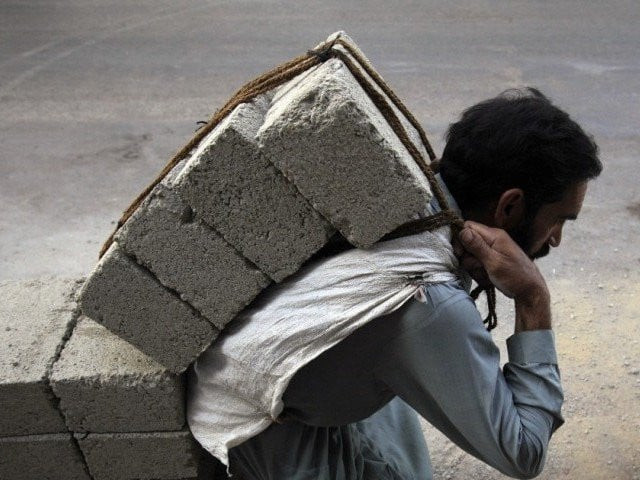Bonded labour vigilance committees missing
Activists decry lack of implementation of legislation meant to protect vulnerable people from thralldom

The centuries old practice of bonded labour was thought to have met its match in the form of provincial legislation meant to end it but those hopes have been washed as cries of lack of implementation have surfaced.
The Sindh Bonded Labour System (Abolition) Act, was passed unanimously by the provincial assembly back in 2015, after the government had pledged that every worker would be freed from the obligation to tender bonded labour. However, officials privy to the framework of the law now allege that implementation of it is minimal.
“The district administration and its vigilance committees are supposed to prevent the menace and take action, but their presence is only on papers,” an official familiar with the matter told the Express Tribune on the condition of anonymity. The official explained that in the 29 districts of the province, the government has to form district level vigilance committees consisting of elected representatives of the area, representatives of the district administration, bar associations, press, members from recognized social services, and the labour department of the Government of Sindh.
“The deputy commissioner (DC) of the area is supposed to be the chairperson of the committees but they are lying non-functional. No meetings are held nor are visits to the field conducted to monitor the situation on ground,” the official said, adding that whatever action had been taken so far by the courts as per the legislation was either on the complaint of civil society activists or media reports.
Akram Khaskheli, President of Hari Welfare Association (HWA) that works for peasant rights in the province, concurring with the allegations informed that the DC-led vigilance committees have no funds or other resources. “Resultantly, thousands of people are still in captivity of landlords and brick-kiln owners in Sindh,” Khaskheli lamented, adding that they had written to the Chief Secretary, Minister for Labour, and provincial human rights department to take actions and implement the law. “However, all those efforts have been in vain.”
It is pertinent to mention that Umkerkot and Sanghar are the most vulnerable districts when it comes to bonded labour. DC Umerkot, Tahir Amin Memon, when asked about his district’s vigilance committee that he chairs, said that he was not aware of it. However, Abdullah Khoso, a rights activist who is a member of Umerkot district’s vigilance committee, told the Express Tribune that the committee is “defunct.”
Similarly, another rights activist, Shuja Qureshi, said that the Sindh government had also established several commissions for the protection of fundamental rights of men, women and children “but I have not seen them working either.” However, Qureshi was of the view that the responsibility of taking action against thraldom should not only be confined to vigilance committees. “Its scope must be wider and the issue should jointly be looked after by the human and labour rights ministries. Only then will we be able to curb the practice,” he suggested.
Leader of the Opposition in the Sindh Assembly, Haleem Adil Shaikh, when asked about the law’s implementation, said that they raise the issue in every session of the assembly, but no one takes it seriously.
“Pakistan People’s Party (PPP) ministers are all talk and no show. They claim to have passed a record number of bills but their implementation is zero,” Shaikh remarked.
The Express Tribune contacted the Special Assistant to the Chief Minister on human rights, Surrender Valasai and Minister of Labour, Saeed Ghani, for the government’s views but did not hear back from them.
However, a spokesperson of the labour department informed that vigilance committees had been notified in most of the districts and that the department has directed the relevant DCs to monitor the situation.
Published in The Express Tribune, August 11th, 2022.


















COMMENTS
Comments are moderated and generally will be posted if they are on-topic and not abusive.
For more information, please see our Comments FAQ